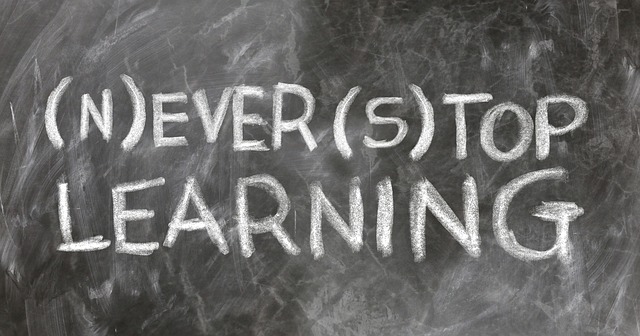The Role of Gratitude in Achieving Work-Life Balance
In today’s fast-paced world, achieving a work-life balance can feel like a daunting challenge, especially for entrepreneurs. The constant juggle between professional responsibilities and personal life leaves many feeling overwhelmed. However, incorporating a practice of gratitude into daily routines can profoundly transform this struggle. Not only does gratitude enhance our perspective on life, but it also plays a vital role in improving our overall entrepreneur well-being. By focusing on what we appreciate, we can effectively reduce stress and cultivate a healthier equilibrium between work and life.
So, how does gratitude contribute to this balance? First of all, being grateful shifts our focus from what we lack to what we have. Instead of fixating on the endless to-do lists or missed deadlines, gratitude encourages us to recognize the small victories and moments of joy scattered throughout our day. This shift in perspective can be incredibly liberating for entrepreneurs, who often grapple with feelings of inadequacy or burnout. By consciously acknowledging what we are thankful for—be it supportive colleagues, encouraging clients, or even a peaceful moment at home—we create a mental space that’s conducive to creativity and productivity.
Another important aspect of gratitude is its ability to foster stronger relationships. Building a supportive network is crucial for any entrepreneur. When we express appreciation to our team members or colleagues, we not only uplift their spirits, but we also strengthen our relationships. People tend to respond positively to gratitude, creating an environment of mutual respect and cooperation. Additionally, strong connections with others contribute to a sense of belonging and reduce feelings of isolation, which can often accompany the entrepreneurial journey. Thus, by practicing gratitude, you’re not only nurturing your own well-being but also sowing the seeds for a supportive community around you.
Understanding the Science Behind Gratitude
The benefits of gratitude aren’t merely anecdotal; various studies underscore its psychological and physiological impacts. Neuroscience research illustrates that gratitude activates brain regions associated with dopamine, the “feel-good” hormone. As a result, expressiveness in gratitude can lead to increased overall happiness and satisfaction. When we intentionally practice gratitude, we condition our brains to scan for positives instead of dwelling on negatives. This rewiring can be extremely beneficial for entrepreneurs who face daily setbacks that may otherwise lead to negativity bias.
Furthermore, gratitude practice has been linked to lower levels of anxiety and depression. This is particularly relevant for entrepreneurs, who often experience chronic stress and risk burnout due to the pressures of managing their businesses. Taking a moment to reflect on the positive aspects—the progress made and the support received—can significantly alleviate feelings of overwhelm. Engaging in a simple gratitude exercise, such as writing down three things you’re thankful for each day, can lay the groundwork for a more positive mindset, which in turn impacts your performance and decision-making processes.
Implementing Gratitude in Daily Life
So, how can you seamlessly incorporate gratitude into your daily routine? Start small. You don’t need to commit to lengthy rituals. A practical approach is as simple as setting aside a few minutes each day to reflect. Whether it’s during your morning coffee or just before bed, take a moment to jot down things you appreciate. It could be as small as enjoying a warm cup of tea or receiving an encouraging message from a friend. This act of recognition can enhance your mood and set a positive tone for your day or indeed lead you to a restful night’s sleep.
Additionally, consider verbalizing your gratitude. When you express appreciation to others, not only do you strengthen your relationships, but you also invite a culture of gratitude into your workplace. Make it a habit to thank your team for their hard work or acknowledge a client’s loyalty. These actions have a ripple effect, fostering an environment where positivity thrives. Furthermore, building gratitude into your company culture can enhance employee satisfaction and retention. When everyone feels valued, productivity and morale soar.
Gratitude and Mindfulness: A Perfect Pair
Gratitude works exceptionally well when combined with mindfulness. Practicing mindfulness encourages you to remain present, where feelings of stress and anxiety often dissipate. When you combine this awareness with gratitude, you cultivate a powerful mindset that stands to benefit not just your work-life balance but your overall mental health as well. Mindfulness training can teach you to appreciate the current moment, breathing in the good and pushing out the bad. It serves as a tool to recenter and refocus when the hustle and bustle of entrepreneurship feels overwhelming.
You can practice this combination in simple ways. Before beginning your workday, take a few moments to be mindful. Recognize your surroundings—the aroma of coffee brewing, the sounds of nature outside your window. As you breathe in, acknowledge these elements with gratitude. Start your day with an intentional mindset that primes you for productivity and positivity. This habit can effectively create a buffer against the inevitable challenges that every entrepreneur faces.
Sharing Gratitude in Your Community
Acknowledging gratitude isn’t only beneficial on an individual level; it can have a significant impact on your community. Sharing your gratitude with others expands its power and creates a ripple effect within your network. Whether through social media, blogs, or community engagement, expressing your appreciation online can inspire others to do the same. This not only fosters a sense of belonging but encourages more profound connections across various platforms.
Consider hosting gratitude-themed events. These can range from workshops that focus on gratitude practices to simple community gatherings that celebrate shared successes. Bringing people together creates communal ties, turning gratitude into a collective practice. The more we share and demonstrate gratitude, the more likely it becomes ingrained in our cultural fabric. Consequently, as entrepreneurs actively participate in their communities, they help promote a supportive and thriving network of individuals dedicated to well-being.
Overcoming Challenges in Practicing Gratitude
While the benefits of gratitude are compelling, some may find it challenging to adopt this mindset, especially amid stress. Life’s pressures, disappointments, and failures can sometimes overshadow positive reflections, creating mental barriers to practicing gratitude. Recognizing these challenges is the first step in overcoming them. One effective strategy is to begin with specific areas or moments. If reflecting on your entire day feels overwhelming, focus on particular scenarios—acknowledging what worked well in a meeting or identifying a kind remark that brightened your day.
Additionally, if you’re struggling to find things to be grateful for, consider reframing how you view adversities. Instead of seeing failures as roadblocks, frame them as learning opportunities. For example, if a project didn’t go as planned, appreciate the insights you gained through the experience. This mental shift not only nurtures a gratitude mindset but equips you with resilience for future challenges. Entrepreneurs that embrace their setbacks and view them through the lens of gratitude often discover newfound strength and motivation to move forward.
The Long-Term Effects of Gratitude on Work-Life Balance
Over time, the regular practice of gratitude can significantly improve your work-life balance. As you train your mind to recognize and appreciate the good, you develop a healthier coping mechanism when faced with challenges. Sustained gratitude practice fosters optimism, reducing burnout and fostering a sense of fulfillment in both personal and professional spheres. You start to see more possibilities instead of limitations. The sense of well-being derived from hosting gratitude acts as a buffer against life’s stressors.
Moreover, gratitude complements other well-being practices, such as exercise and proper nutrition. As you cultivate a balanced routine that incorporates gratitude, you’re likely to notice improvements in your body and mind alike. This holistic approach to well-being means that both your personal and professional lives flourish, leading to greater success and satisfaction in all endeavors.
Conclusion
As we’ve explored, gratitude is more than just a fleeting emotion; it’s a powerful tool for achieving lasting work-life balance. By intentionally embracing gratitude, entrepreneurs can shift their mindset, strengthen relationships, and cultivate a healthier and more fulfilling lifestyle. The practice fuels a cycle of appreciation, positivity, and well-being, ensuring that as you grow your business, you also thrive as a person. In a world where the hustle often overshadows the heart, gratitude reminds us of the beauty within our journey.
FAQ
1. How can I start incorporating gratitude into my daily routine?
You can start small by taking a few minutes each day to reflect on things you appreciate. This could be writing them down in a journal or simply acknowledging them in your mind. Additionally, try verbalizing your gratitude to others to strengthen your relationships.
2. Does practicing gratitude really help reduce stress?
Yes, studies have shown that practicing gratitude can result in lower levels of stress. By focusing on positive aspects of your life, you shift your mindset, allowing you to cope better with challenges and reduce negative emotions.
3. Can gratitude improve my business relationships?
Absolutely! Expressing gratitude fosters a supportive environment and strengthens connections with colleagues, clients, and your community. Gratitude creates a culture of appreciation and boosts morale across your network.
4. What if I find it hard to feel grateful?
It’s common to struggle with gratitude, especially during tough times. Try to focus on specific moments or learn to reframe challenges as growth opportunities. The more intentional you are, the easier it becomes to recognize and appreciate positive aspects.
5. How does gratitude affect long-term well-being?
Practicing gratitude over time can significantly enhance your mental and emotional well-being. It fosters resilience, optimism, and a deeper appreciation for life, ultimately leading to a better work-life balance and more fulfillment personally and professionally.



